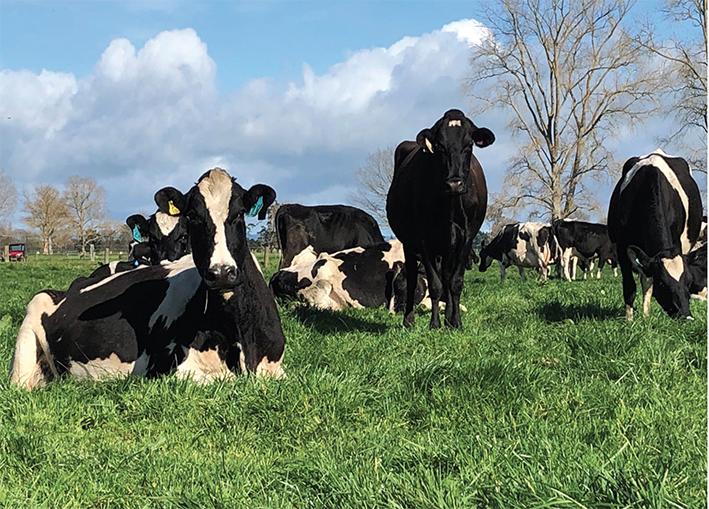New Zealand exports in excess of 90% of its dairy products and is the world’s leading supplier of whole milk powder to China. New Zealand must expand current dairy trade markets and identify emerging market opportunities to remain competitive in the global dairy trade. New Zealand is an export dependent country, that efficiently produces milk and dairy products in excess of domestic market requirements. Returns from dairy trade contribute over 40% of food and fibre revenue which is more than 80% of the total export revenue to the New Zealand economy. China is New Zealand’s largest dairy product export market, importing an estimated NZD$8.3 billion of whole milk powder during the 2022 year. Pre-COVID and the Russia – Ukraine conflict, the demand for New Zealand dairy products was increasing in the Asia and Middle East regions; particularly in countries such as Japan, the UAE and Singapore. Food security has become a priority for countries such as the UAE and Singapore, who are dependent on food imports to feed their populations.
Dubai, Tokyo and Singapore are studied in this research, exploring trade expansion opportunities throughout the Asia and Middle East regions, through applying a gateway city model. The literature describes gateway cities as business hubs, linking international financial and consumer markets and connecting nearby regions where trade has been restricted due to political instability, social unrest, or bureaucratic red tape. The importance of political stability in the gateway city and country is an important element for gateway cities. Both Dubai and Singapore are well respected in their regions for the secure flow of finance and reliable financial systems. Geopolitical uncertainties can be high in Asia and the Middle East regions and Dubai and Singapore are recognised as a safe place to engage in business and investment.
Gateway cities perform an important role of connecting their hinterlands and peripheries to the global trade network. Gateway cities further perform a brokerage role; mediating the flow of goods, capital and labour; creating a connection between regions through a central role in logistics, transportation and wholesaling. Gateway cities gain wealth from their regions and create regional economic wealth. They are cities that are seen as attractive places to live and work for foreign talent, tourists and investors. Further, gateway cities like Singapore and Dubai have Governments who have invested in creating trade relationships that support the ease of trade and access to markets. Tokyo is a unique gateway city, connecting Tokyo to Japan’s domestic market and the wider Asia region. Japan has gained power and influence through regional and global economies; connecting to its hinterland and other world
cities.
The Asia and Middle East regions are the largest volume importers of whole milk powder (WMP), followed by skim milk powder (SMP), cheese and butter. The UAE is the second largest volume importer of WMP, behind China during the 2017-2021 years. The ten largest volume importers of SMP are from the Asia region and the Middle East countries do not feature on the top ten list. Japan is the largest volume importer of cheese and the UAE is the sixth largest volume importer of cheese. Five Middle East countries feature as the top ten cheese importers across the Asia and Middle East regions. Butter is the least imported dairy product across the regions, however Singapore, the UAE and Japan all feature on the top ten largest volume importer list for the 2017-2021 years for butter. New Zealand will remain a strong exporter of WMP and butter and the cheese market is one that can be further expanded. New Zealand is a larger volume exporter of dairy products across the Asia region, and the Middle East market creates an opportunity for market expansion. The UAE, Japan and Singapore are three countries which feature on the top ten importing countries across the Middle East and Asia for all four dairy product imports.
Domestic dairy production in Japan is highly regulated to create a stable supply of fresh milk for the domestic market. The cost of producing milk in Japan is high, with a dependency on feed imports, driving the cost of production. Despite strong Government support and subsidies, Japanese Dairy Farmers are experiencing the challenge of increasing business debt and an ageing workforce. Japanese consumers enjoy engaging with the origin of their dairy products and agri-tourism is popular. Health benefits drive Japanese consumer behaviour towards dairy product choice and dairy products such as: international cheeses, yoghurts, drinking yoghurts and protein drinks are becoming increasingly popular. Singapore and Dubai have limited domestic production of milk and are reliant on imported dairy products.
Singapore has a diverse population. The expatriate population contributes to 30% of the total population and has influenced Singaporean diets, resulting in an increase of dairy product consumption. Singaporean consumers are health conscious and consider dairy based protein for health and nutrition benefits. Singapore and Dubai import more than 90% of their food for their domestic population. Up to 90% of Dubai’s population are expatriates from over 200 nationalities. Dubai supermarkets are specifically targeted at consumer groups and cater for a super diverse population meeting the needs by extensive food imports. The UAE is experiencing a shift towards more value-add, convenient and healthier food alternatives, developing a taste for westernised diets; influenced by a growing expatriate population. Food security strategies have created heightened awareness for food import dependent countries; Singapore and the UAE. The Singaporean Government has invested in science, innovation and research to look at alternative forms of growing food and protein. Singapore is well known for its science and research centres along with its urban strategy.
Further research to understand the influence of country-based culture on consumer food choices across Asia and the Middle East is required. Current research does not adequately understand the cultural influences on dairy product choice and consumption. Understanding country-based culture provides an insight into the daily eating habits, rituals, traditions and consumption patterns. Asia has been a traditional consumer of plant-based protein and understanding the social shift that is occurring particularly in ageing populations is important.
Consumption of food has been linked to economic and social factors, including disposable income, age, education, family member and family size. Consumer buyer behaviour is different for domestic populations compared to expatriate populations, particularly in Singapore and Dubai, where the expatriate population is significantly higher than Japan. Increasing urbanisation also impacts consumer food choices along with population growth leading towards higher value foods and an increase in dairy product consumption.





